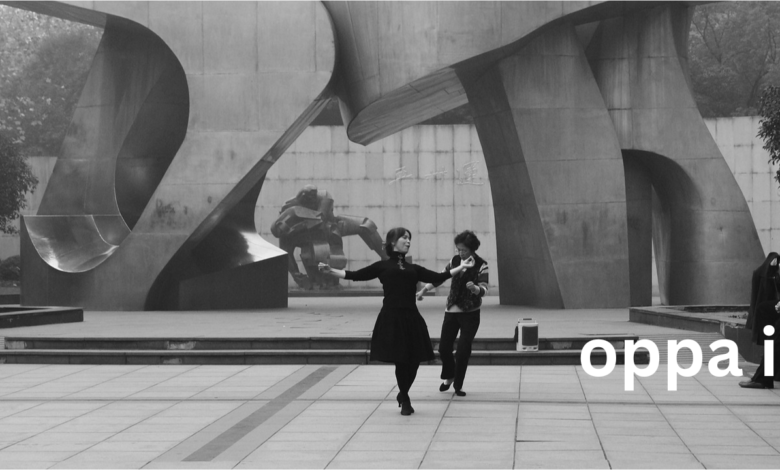The Allure of K-Pop: Understanding the “Oppa i” Phenomenon
The Allure of K-Pop: Understanding the "Oppa i" Phenomenon

Introduction
K-Pop has taken the world by storm, captivating audiences with its catchy music, intricate choreography, and charismatic idols. But there’s one term that seems to stand out in this cultural wave: “Oppa i.” If you’re a K-Pop fan or have even a passing interest in Korean culture, you’ve probably heard it. But what exactly is the “Oppa” phenomenon, and why is it so significant?
The Origins of “Oppa”
Historical Context
The term “Oppa” originally means “older brother” in Korean. It is used by women to address older male friends or siblings. Historically, it signified respect and affection within familial and platonic relationships.
Evolution in Modern Times
Over time, “Oppa” has evolved beyond its familial roots. In contemporary usage, it often carries romantic and affectionate connotations, especially when used by younger women to address older men they admire or are close to.
Cultural Significance of “Oppa i”
Role in Korean Society
In Korean society, “Oppa” reflects deep-seated cultural norms around respect and hierarchy. It highlights the importance of age and gender dynamics, where younger individuals show deference to their elders.
Influence in Popular Media
K-Dramas, movies, and especially K-Pop have popularized “Oppa i” globally. It’s not just a word; it’s an emotional expression that conveys warmth, admiration, and often, romantic interest.
The “Oppa” Archetype in K-Pop
Characteristics of an “Oppa i”
In the K-Pop world, an “Oppa” is typically portrayed as handsome, charming, and caring. This archetype is designed to appeal to the fantasies and desires of fans, often portraying an ideal boyfriend or an aspirational figure.
Famous K-Pop Idols as “Oppa
Icons like BTS’s Jin, EXO’s Chanyeol, and BIGBANG’s G-Dragon are celebrated as quintessential “Oppas.” Their stage personas often emphasize traits that fans find endearing and comforting.
Psychological Appeal of “Oppa i”
The Comfort Factor
The “Oppa” figure provides a sense of security and comfort. For many fans, especially younger women, calling someone “Oppa” bridges the gap between fantasy and reality, offering emotional solace.
The Fantasy Element
There’s a strong element of fantasy in the “Oppa” phenomenon. It allows fans to project their dreams and desires onto a figure who embodies ideal traits, creating a personal connection that feels real.
“Oppa” and Fan Culture
Fan Interactions
Fans interact with their “Oppas” through fan meetings, concerts, and social media. These interactions are often filled with declarations of love and support, strengthening the bond between idols and fans.
Fan Art and Fiction
The “Oppa” phenomenon has inspired countless fan arts and fictions. Fans create elaborate stories and illustrations that bring their favorite “Oppas” to life in various scenarios, further deepening their emotional engagement.
Impact of Social Media
Amplification of the “Oppa i” Image
Social media platforms like Twitter, Instagram, and Weibo have amplified the “Oppa i” image. Idols share glimpses of their personal lives, interact with fans, and maintain their “Oppa” personas online.
Interaction Between Idols and Fans
These platforms allow for direct communication, where fans can feel closer to their idols. The immediate feedback loop enhances the “Oppa” appeal, making idols seem more accessible and real.
Global Spread of the “Oppa” Phenomenon
Expansion Beyond Korea
The “Oppa” phenomenon isn’t confined to Korea. It’s spread across Asia and beyond, with international fans adopting the term and integrating it into their fan culture.
Influence on Global Pop Culture
Western media has also picked up on the “Oppa” trend. It’s not uncommon to see references to “Oppa” in TV shows, movies, and even among celebrities who express their fandom for K-Pop idols.
Gender Dynamics and “Oppa i”
Male and Female Perspectives
While primarily used by women, the term “Oppa” also has significance for men. It reinforces traditional gender roles and expectations, highlighting the dynamics between masculinity and femininity in Korean culture.
The Role of Femininity and Masculinity
“Oppa” often embodies an idealized masculinity that is gentle yet strong, protective yet approachable. This duality is key to its appeal, providing a balance that resonates with fans.
Criticism and Controversies
Objectification and Unrealistic Expectations
One major criticism of the “Oppa i” phenomenon is that it can lead to the objectification of idols. Fans might develop unrealistic expectations, pressuring idols to maintain a certain image constantly.
Cultural Misunderstandings
As the term spreads globally, it sometimes leads to cultural misunderstandings. The nuances of “Oppa” might be lost in translation, leading to misinterpretations and inappropriate usage.
“Oppa i” in Other Entertainment Forms
Drama and Film
Beyond music, “Oppa” is a staple in Korean dramas and films. Characters often embody the “Oppa” traits, reinforcing the archetype across various media forms.
Variety Shows
Variety shows further popularize the “Oppa” image by showcasing idols’ personalities in a relaxed, often humorous setting, making them more relatable and endearing to fans.
Marketing the “Oppa” Image
Commercial Success
The “Oppa” image is a powerful marketing tool. Brands collaborate with popular “Oppas” to boost their products, leveraging the idols’ appeal to drive sales and brand loyalty.
Brand Endorsements
From cosmetics to fashion, “Oppas” endorse a wide range of products. Their influence extends beyond music, shaping consumer behavior and trends in various industries.
Future of the “Oppa” Phenomenon
Trends and Predictions
The “Oppa” phenomenon is likely to evolve with changing cultural dynamics. As fans’ preferences shift, so too will the characteristics that define an “Oppa.”
Potential Changes in the Industry
The entertainment industry may see a diversification of the “Oppa” image, accommodating different tastes and breaking away from traditional archetypes to stay relevant.
Personal Stories from Fans
Testimonials and Experiences
Fans often share personal stories about how their favorite “Oppa” has impacted their lives. These testimonials highlight the deep emotional connections that fans form with idols.
Emotional Connections
The bond between fans and “Oppas” is more than just admiration; it’s an emotional connection that can offer comfort, inspiration, and a sense of belonging.
Conclusion
The “Oppa i” phenomenon in K-Pop is a fascinating blend of cultural significance, psychological appeal, and global influence. It represents more than just a term of endearment; it’s a symbol of the deep connections between idols and their fans. As K-Pop continues to grow, so too will the allure of the “Oppa,” adapting to new trends and reaching even wider audiences.
FAQs
What does “Oppa i” mean in Korean culture?
“Oppa” means “older brother” in Korean and is used by women to address older male friends or siblings. It has evolved to carry romantic and affectionate connotations in contemporary usage.
How did the “Oppa i” phenomenon start?
The “Oppa” phenomenon started with its traditional use in Korean society and gained popularity through K-Pop, K-Dramas, and other media forms, where it came to symbolize an idealized male figure.
Who are some popular “Oppas” in K-Pop?
Popular “Oppas” in K-Pop include BTS’s Jin, EXO’s Chanyeol, and BIGBANG’s G-Dragon, known for their charm, talent, and appealing personas.
How does the “Oppa i” image impact fan behavior?
The “Oppa” image creates a strong emotional bond between idols and fans, leading to dedicated fan bases that engage in various supportive activities like attending concerts, buying merchandise, and participating in fan events.
What are the criticisms of the “Oppa i” phenomenon?
Criticisms of the “Oppa” phenomenon include the objectification of idols, unrealistic expectations placed on them, and cultural misunderstandings as the term spreads globally.



